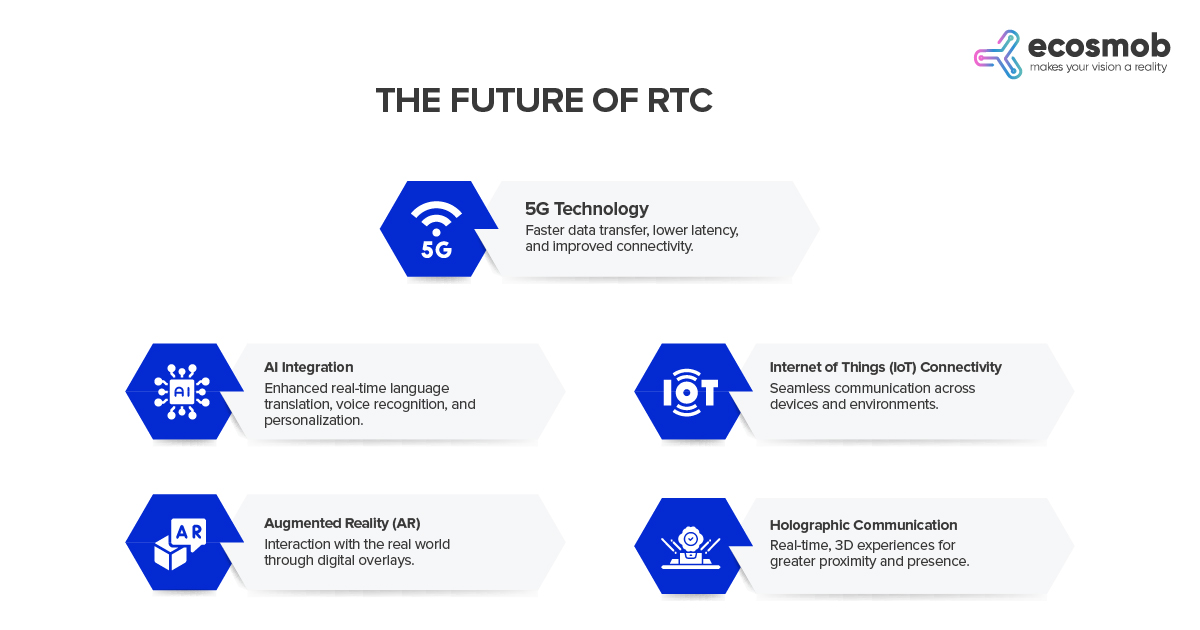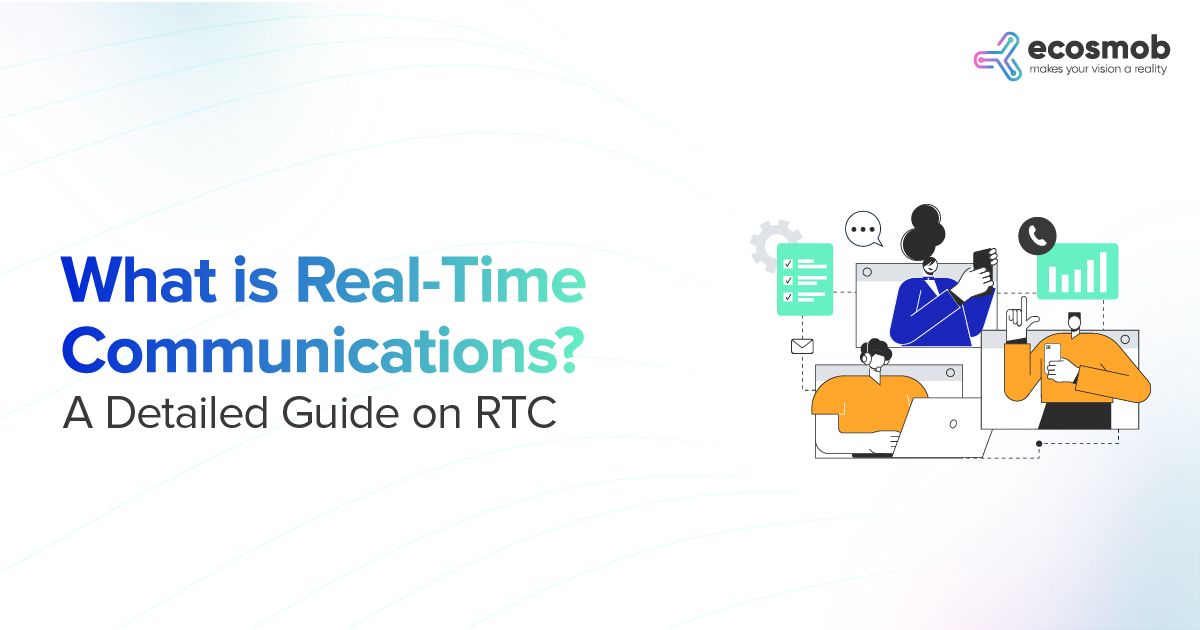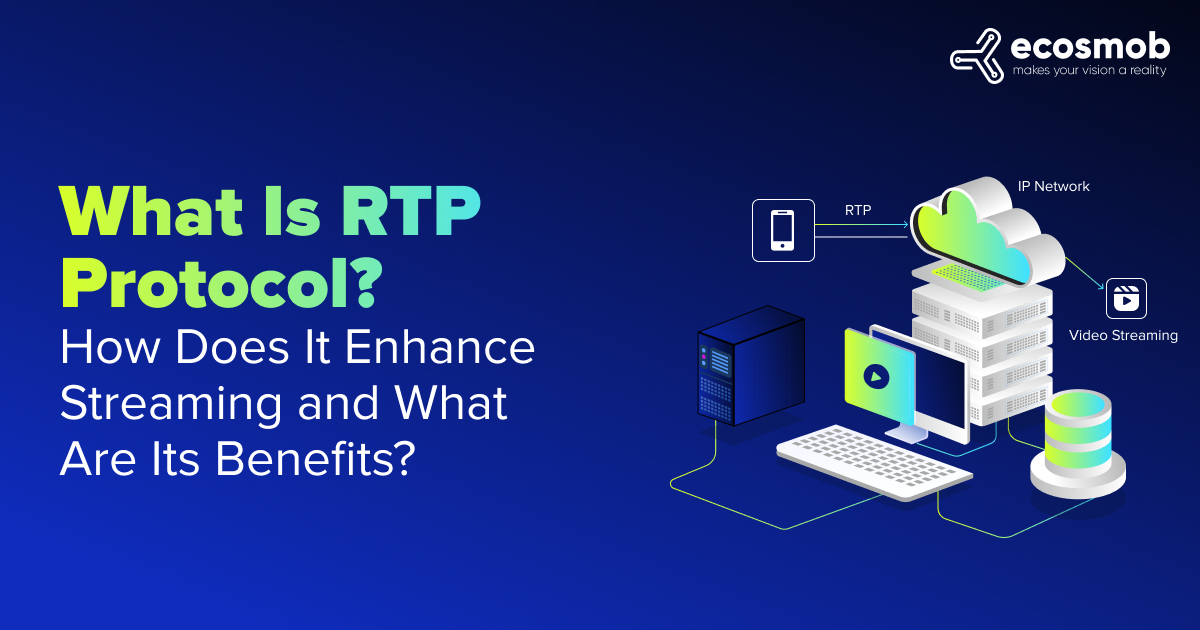QUICK SUMMARY
In this blog, discover the essentials of Real-Time Communications (RTC), including WebRTC, VoIP, and instant messaging. Learn how RTC enhances collaboration, improves customer experiences, and provides secure, scalable solutions for modern businesses. We also explore its benefits, protocols, and real-world applications for today’s digital enterprise.
Over the last three years, I’ve noticed that companies have been focusing more on layoffs than on hiring new talent. I’m not saying there’s anything inherently wrong with that. I understand that to run a business, it’s essential to manage resources effectively and reduce expenses to pursue the ultimate goal: profitability.
However, these layoffs can damage team morale and weaken the company’s overall strength. Real-time communication has become increasingly important for business teams as the global business landscape shifts toward a remote work culture. It also helps reduce the costs associated with maintaining physical office infrastructure while enabling collaboration with talent from around the world. What makes this possible? Real-time communication.
In this blog, we will explore the world of web real-time communication (WebRTC), discover its types, and explore why RTC is the ultimate game-changer for your remote team’s success. Let’s get started!
What is Real-Time Communication?
Real-time communication (RTC) is the live exchange of information, whether it’s voice calls, video conferencing, or text, between two or more parties with little to no delay. Unlike traditional communication methods (like emails or recorded messages), RTC allows users to interact instantly, just like in face-to-face conversations.
For example, you’re using real-time communication when you’re on a Zoom call, sending a quick Slack message, or chatting via a customer support live chat.
Real-time communication (RTC) is important for a remote-friendly business world because it enables instant interaction through different communication channels and keeps teams connected. It increases productivity by allowing faster decision-making, improves customer satisfaction with immediate support, and strengthens collaboration across time zones.
What Are Real-Time Communication Technologies and How Do They Work?
Here is a list of real-time communication technologies that allow smooth and seamless interactions.
1. Web Real-Time Communication (WebRTC)
Web real-time communication is a revolutionary open-source framework that enables real-time audio, video, and data communication directly through web browsers. Built on JavaScript APIs and HTML5, WebRTC solutions allow organizations to integrate seamless communication capabilities into their web applications without needing third-party plugins or software. This technology empowers businesses to conduct high-definition video conferences, live streaming, and real-time collaboration on web-based platforms. Enterprises can harness WebRTC’s power to facilitate online meetings, webinars, and virtual trade shows, creating immersive experiences for clients and partners.
2. Voice over Internet Protocol (VoIP)
VoIP technology has paved the way for crystal-clear voice communication by converting analog audio signals into digital data packets and transmitting them over IP networks. B2B enterprises widely adopt VoIP solutions to replace traditional phone systems, benefiting from cost-effective international calls, feature-rich functionalities like call forwarding and voicemail, and scalability accommodating business growth. With VoIP, businesses can conduct conference calls, negotiate deals with overseas partners, and constantly communicate with their teams. This helps in reducing communication costs and increasing productivity.
3. Instant Messaging and Chat Applications
RTC-driven instant messaging platforms have become the driving force of businesses, offering real-time text-based interactions, file sharing, and group collaboration. Encrypted messaging services ensure secure data transmission, making them ideal for exchanging sensitive business information. With integrations into project management tools, these applications streamline workflow and enhance team productivity. Businesses can leverage instant messaging to coordinate with logistics, resolve customer inquiries promptly, and foster better internal and external communication.
4. Video Conferencing Solutions
RTC-enabled video conferencing solutions have become the go-to choice for businesses seeking immersive virtual meetings. High-definition video and audio quality, screen-sharing capabilities, and real-time collaboration foster more engaging and productive remote discussions. Companies can host multi-participant meetings, conduct training sessions, and connect with global teams effortlessly. Video conferencing eliminates the barriers of physical distance, enabling face-to-face interactions with partners and clients worldwide, strengthening business relationships, and accelerating decision-making processes.
If you’re confused about choosing between telepresence and conferencing solutions, then this blog is for you.
Why is Real-Time Communication Important for Businesses?
Here are some reasons real-time communication is essential for business growth.
1. Enhanced Real-Time Collaboration
RTC empowers enterprises to transcend geographical barriers, enabling teams and partners to collaborate in real-time. Whether project planning, strategizing, or addressing critical issues, real-time collaboration fosters swift decision-making and promotes a cohesive team dynamic. Teams can work together in real-time, instantaneously review project updates, and collectively brainstorm innovative ideas, regardless of location.
2. Superior Customer Experience
Exceptional customer service is paramount for every business. RTC tools, such as live chat, video calls, and virtual customer support, offer instant and personalized assistance to clients, strengthening customer relationships and loyalty. Businesses can provide timely responses to customer queries, address concerns quickly and accurately, and offer virtual demonstrations of products or services, leaving a lasting positive impression.
3. Optimal Resource Management
Organizations often deal with complex logistics and resource management. Real-time communications streamline collaboration between departments, suppliers, and distributors, optimizing supply chain operations and reducing delays. For instance, real-time inventory tracking allows businesses to manage stock levels efficiently, preventing stockouts and ensuring timely deliveries.
4. Competitive Advantage
By embracing real-time communications, businesses gain a competitive edge over peers still relying on traditional communication methods. Prompt responsiveness, seamless collaboration, and efficient customer support set the stage for long-term success. Businesses that leverage RTC technologies can adapt faster to changing market demands, seize opportunities ahead of competitors, and establish themselves as industry leaders.
5. Scalability and Integration
RTC solutions are highly scalable, accommodating the growing needs of expanding businesses. Moreover, these technologies are designed with integration capabilities, allowing seamless integration with existing business applications, CRM systems, and project management tools. Companies can customize RTC solutions to suit their requirements, ensuring a smooth and harmonious workflow across all business processes.
6. Secure and Private Communications
Security is a top priority for every business. RTC technologies employ robust AES 256 encryption and secure communication protocols, protecting sensitive business data and confidential client information. Web real-time communication ensures companies entrust the privacy and integrity of their communications while allowing them to engage in open discussions without fear of compromise.
The Future of RTC
 The future of real-time communication (RTC) is filled with an array of exciting possibilities as technology advances at an unprecedented pace. We can expect to see seamless integration of RTC with sophisticated AI-powered assistants that will revolutionize the way we interact. Imagine virtual meetings where AI transcribes conversations in real time, provides intelligent insights, and highlights key points, ensuring that important information isn’t missed.
The future of real-time communication (RTC) is filled with an array of exciting possibilities as technology advances at an unprecedented pace. We can expect to see seamless integration of RTC with sophisticated AI-powered assistants that will revolutionize the way we interact. Imagine virtual meetings where AI transcribes conversations in real time, provides intelligent insights, and highlights key points, ensuring that important information isn’t missed.
Additionally, the evolution of enhanced virtual reality (VR) experiences will transform communication into a more immersive affair. Picture a scenario where participants in a virtual meeting can interact as if they are in the same room, utilizing lifelike avatars and 3D environments that simulate face-to-face interactions. This groundbreaking fusion of RTC and VR technology is poised to make remote interactions more engaging and foster collaboration in previously unimaginable ways.
As web real-time communication continues to adapt and grow, the horizon is indeed overflowing with innovation, offering limitless potential that will reshape how individuals and organizations communicate and collaborate globally.
In Conclusion
Real-time communication is about connecting instantly, whether through video calls, quick chats, or even online. Technologies like WebRTC and VoIP make this happen smoothly. This instant connection is a game-changer for your business, especially with more people working remotely.
It helps your teams work together better, makes your customers happier with quick support, and overall helps your business run more smoothly and efficiently. As technology keeps improving, real-time communication will only become more important for all of us to stay connected and get things done in our fast-paced world. If your company wants to keep up and succeed, having good tools for real-time communication is really key for you.
At Ecosmob, we have been building real-time communication solutions like VoIP and WebRTC for over 16 years. We understand the demand for speed and seamless connectivity. Our solutions are purpose-built to support high-quality voice and video across diverse networks securely and at scale.
What makes us different?
Our platforms are fully customizable, integrate effortlessly with your existing systems, and deliver carrier-grade performance backed by 24/7 expert support.
Contact Us Now.
Looking for scalable RTC? Count on Ecosmob
FAQs
What is real-time communication in business?
Real-time communication in business refers to the instant exchange of information through technologies like WebRTC, VoIP, and messaging platforms, enabling seamless collaboration and customer service.
What are real-time communication protocols?
Protocols for real-time communication include WebRTC, SIP (Session Initiation Protocol), RTP (Real-Time Transport Protocol), and XMPP, ensuring low-latency data transfer and interactive experiences.
Which technologies are used for real-time communication?
Real-time communication technologies include WebRTC, VoIP, SIP, video conferencing tools, and instant messaging applications designed for synchronous communication.
What are some real-time communication examples?
Examples of real-time communication include live video meetings, voice calls via VoIP, live chat support, instant messaging, and collaborative whiteboarding in remote teams.
What is the best protocol for real-time communication?
WebRTC is widely considered one of the best protocols for real-time communication due to its browser compatibility, low latency, and support for audio, video, and data streams.
How does RTC messaging work?
RTC messaging uses instant messaging protocols like XMPP or WebRTC Data Channels to transmit messages instantly across devices, enabling secure and real-time team communication.
What is the definition of real-time communication?
The definition of real-time communication is the instantaneous transmission and reception of information like voice, video, or text between users with minimal latency.












